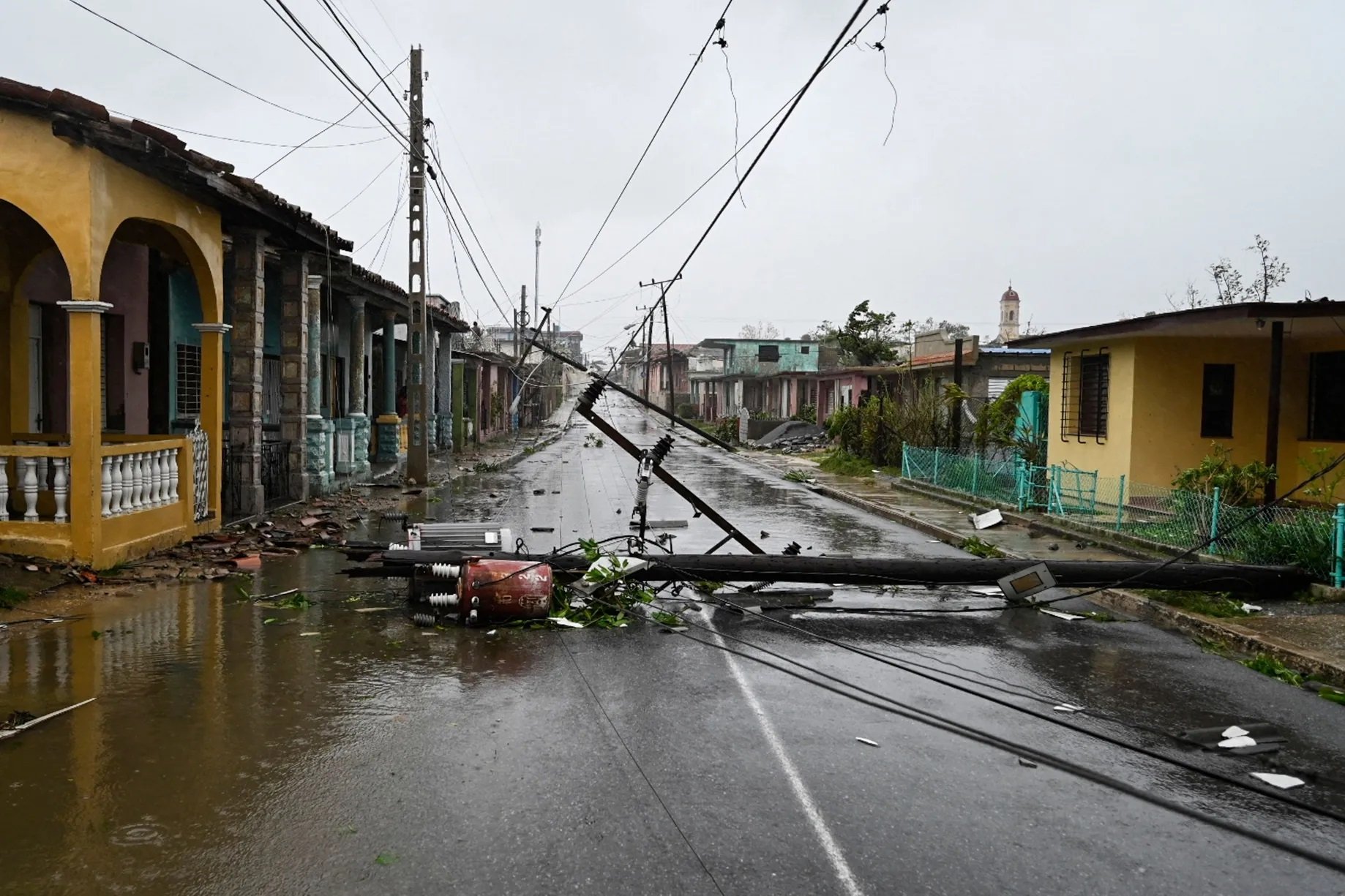Government Of Cuba Turned To United States Companies To Replace Utility Poles After Two Previous Hurricanes. Will They Again?
/The Trade Sanctions Reform and Export Enhancement Act (TSREEA) of 2000 re-authorized the direct commercial (on a cash basis) export of food products (including branded food products) and agricultural commodities from the United States to the Republic of Cuba, irrespective of purpose. The TSREEA does not include healthcare products, which remain authorized and regulated by the Cuban Democracy Act (CDA) of 1992. Other product exports and imports are guided by regulations implemented (1992 to present) by the Bureau of Industry and Security (BIS) of the United States Department of Commerce, the Office of Foreign Assets Control (OFAC) of the United States Department of the Treasury, and United States Department of State.
After the TSREEA was enacted, the government of the Republic of Cuba stated that it would not purchase “a grain of rice or a kernel of corn” due to the payment of cash in advance requirement. United States-based companies, trade organizations, and members of the United States Congress were public in their disappointment given the extraordinary two-year effort to craft legislation, obtain support in the United States House of Representatives and United States Senate, and then signed into law.
In November 2001, Hurricane Michelle impacted the Republic of Cuba. Subsequently, the government of the Republic of Cuba stated that it would make a “one-off” purchase of products using provisions of the TSREEA. The first deliveries in December 2001 and consisted of corn, poultry, and rice. The initial list of products desired included wood, utility poles, and other products deemed necessary for reconstruction. Utility poles would not be purchased until 2004.
To date, TSREEA-authorized agricultural commodity and food product exports from the United States to the Republic of Cuba exceeds US$7,557,299,406.00.
U.S. firms sign first Cuba trade deals
“HAVANA Nov 21, 2001 (Reuters) - Four agribusinesses became the first U.S. firms in four decades to sign trade accords with Cuba to supply food worth about $20 million in the wake of Hurricane Michelle, business sources said Wednesday. Representatives of Archer Daniels Midland Company, Cargill, Riceland Foods and ConAgra, were in Havana this week to sign the agreements with Cuban state company Alimport to provide wheat, corn, soy and rice, said John Kavulich, president of the New York-based U.S.-Cuba Trade and Economic Council.
The deals came after Cuba -- subject to a U.S. embargo since soon after President Fidel Castro's 1959 revolution -- appealed to Washington to speed up authorization to buy food and medicines from the United States on a one-off basis to replenish stocks used after its worst storm in half a century. Hurricane Michelle struck central Cuba on Nov. 4, killing five people, flattening thousands of houses, and severely damaging crops earmarked for both export and local needs. Washington had first offered to send humanitarian aid via non-government bodies, but Havana replied with a polite refusal and a counteroffer to buy food and medicines with cash.
HAVANA SAYS SALES ARE EXCEPTIONAL
Havana has stressed, however, that the sales are exceptional because of the hurricane damage, and has reiterated its appeal for a full lifting of the embargo. "The contracts being signed with Cuba should not be seen as as a start of a ongoing commercial relationship with Cuba. They are taking place under a humanitarian umbrella after Hurricane Michelle as the Cubans have made clear they don't expect to continue with these purchases," Kavulich said. Kavulich said Cuba has made clear it wants to buy U.S. products on an emergency basis to cope with the hurricane aftermath and has no interest in continuing to buy U.S. goods under current embargo restrictions.”
United States Department of State
Washington DC
6 May 2004
Commission for Assistance to a Free Cuba
Released by the Bureau of Western Hemisphere Affairs
Chapter 5: Modernizing Infrastructure
As for power transmission, the power grid is near capacity and is also declining due to the lack of maintenance. Another problem is that most of the existing infrastructure is based on above-ground transmission lines strung on wooden poles, which make the Cuban system more vulnerable to extreme weather when compared to more modern concrete poles.60 Only parts of old Havana have buried lines61 that were recently put in place.
RECOMMENDATIONS:
Medium-term: The U.S. Government should be prepared to provide assistance in assessing the age and condition of the transmission and local distribution grids. Existing wooden poles could be upgraded to concrete poles.
Long-term: The U.S. Government should be prepared to provide assistance in assessing existing power plants in an effort to determine if they should be converted or upgraded to process/utilize more efficient technologies through import/export incentives.
The owner of one Alabaman pole-making business, which first shipped utility poles to Cuba after Hurricane Charley in [August] 2004, says that competition is fierce for the Cuban business, especially since a large-scale electrification project in Cuba has boosted demand.
Through 2016 nothing
USA TODAY



